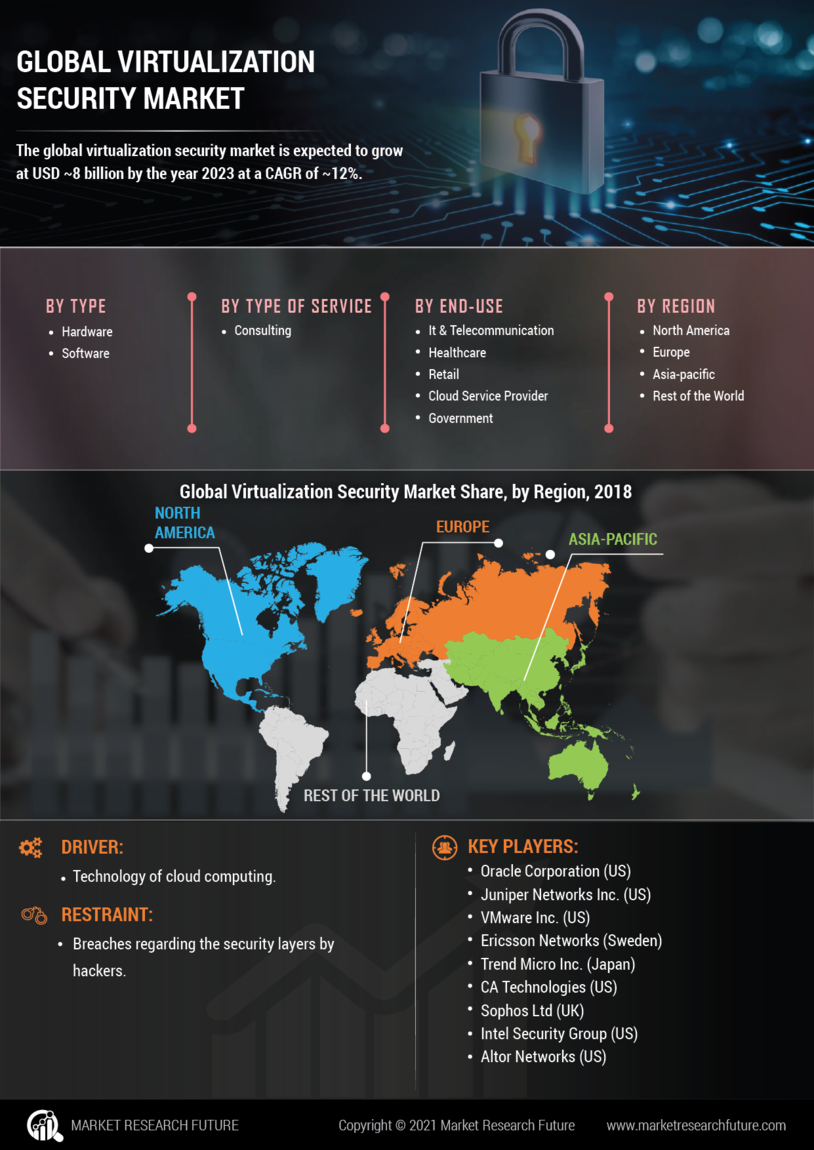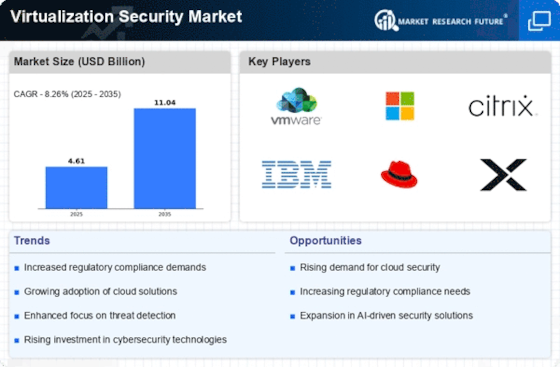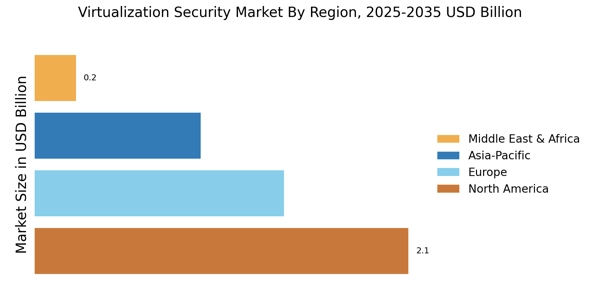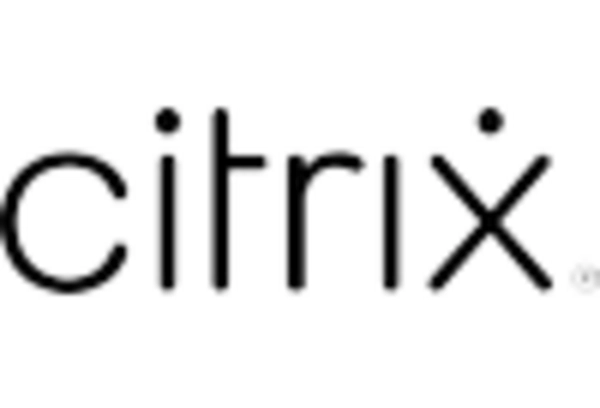Rising Cybersecurity Threats
The increasing frequency and sophistication of cyberattacks is a primary driver for the Virtualization Security Market. Organizations are facing a myriad of threats, including ransomware, phishing, and advanced persistent threats. As a result, there is a heightened demand for robust security solutions that can protect virtualized environments. According to recent data, the number of reported cyber incidents has surged, prompting businesses to invest significantly in virtualization security measures. This trend is likely to continue as attackers evolve their tactics, making it imperative for organizations to adopt comprehensive security frameworks that address vulnerabilities in their virtual infrastructures. The urgency to safeguard sensitive data and maintain operational integrity is propelling growth in the virtualization security sector.
Adoption of Cloud Technologies
The rapid adoption of cloud technologies is a significant catalyst for the Virtualization Security Market. As businesses increasingly migrate their operations to cloud environments, the need for effective security solutions becomes paramount. Virtualization plays a crucial role in cloud computing, enabling resource optimization and scalability. However, this shift also introduces new security challenges, such as data breaches and unauthorized access. Consequently, organizations are seeking advanced virtualization security solutions to protect their cloud-based assets. Market data indicates that the cloud security segment is expected to grow substantially, reflecting the urgent need for comprehensive security strategies that encompass virtualization technologies. This trend is likely to drive innovation and investment in the virtualization security landscape.
Regulatory Compliance Requirements
The Virtualization Security Market is significantly influenced by the need for compliance with various regulations and standards. Organizations are increasingly required to adhere to stringent data protection laws, such as GDPR and HIPAA, which mandate the implementation of adequate security measures. Non-compliance can result in severe penalties and reputational damage, thus driving companies to invest in virtualization security solutions. The market is witnessing a surge in demand for tools that facilitate compliance monitoring and reporting, ensuring that virtualized environments meet regulatory requirements. As regulatory frameworks continue to evolve, organizations are likely to prioritize investments in virtualization security to mitigate risks associated with non-compliance.
Integration of Advanced Technologies
The integration of advanced technologies, such as artificial intelligence and machine learning, is driving innovation within the Virtualization Security Market. These technologies offer enhanced capabilities for threat detection, response, and prevention, enabling organizations to proactively address security challenges in virtualized environments. AI-driven security solutions can analyze vast amounts of data to identify anomalies and potential threats in real-time, significantly improving incident response times. As organizations seek to bolster their security postures, the demand for virtualization security solutions that leverage these advanced technologies is likely to increase. Market trends suggest that the incorporation of AI and machine learning into virtualization security frameworks will become a standard practice, further propelling growth in the industry.
Increased Demand for Remote Work Solutions
The rise of remote work has created a pressing need for enhanced security measures within the Virtualization Security Market. As organizations adapt to flexible work arrangements, they are increasingly relying on virtualized environments to facilitate remote access to critical applications and data. This shift necessitates robust security protocols to protect against potential vulnerabilities associated with remote access. Companies are investing in virtualization security solutions that ensure secure connections and data integrity for remote employees. The market is witnessing a notable increase in demand for solutions that provide secure virtual desktop infrastructure (VDI) and application delivery, reflecting the ongoing transformation of work environments. This trend is expected to continue as remote work becomes a permanent fixture in many organizations.


















